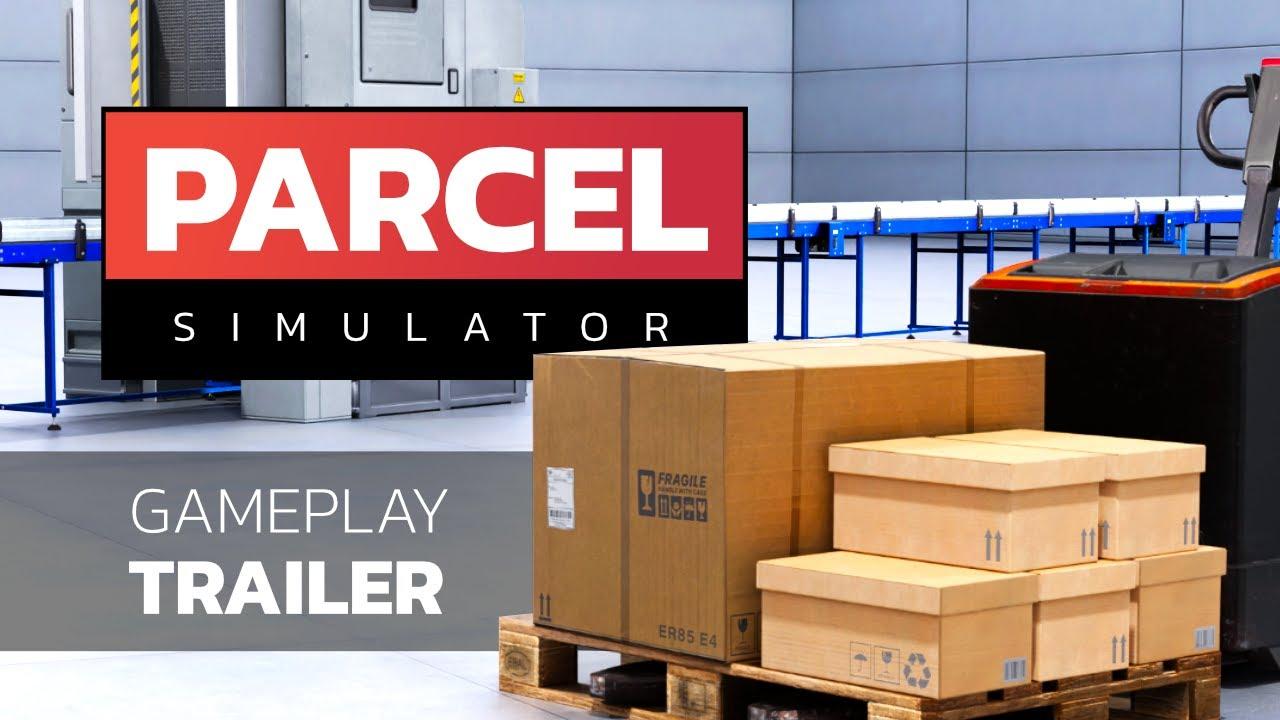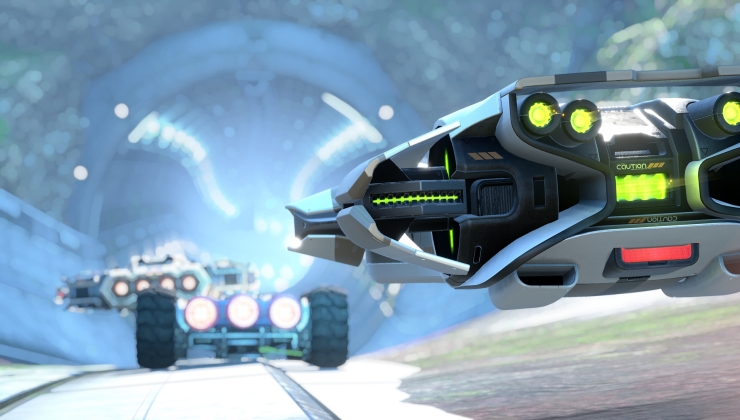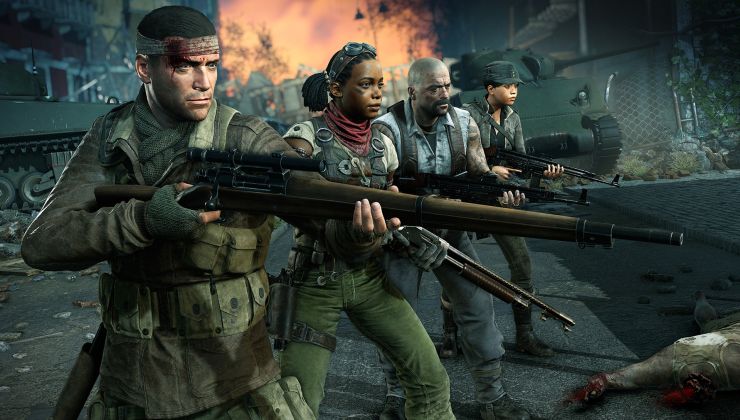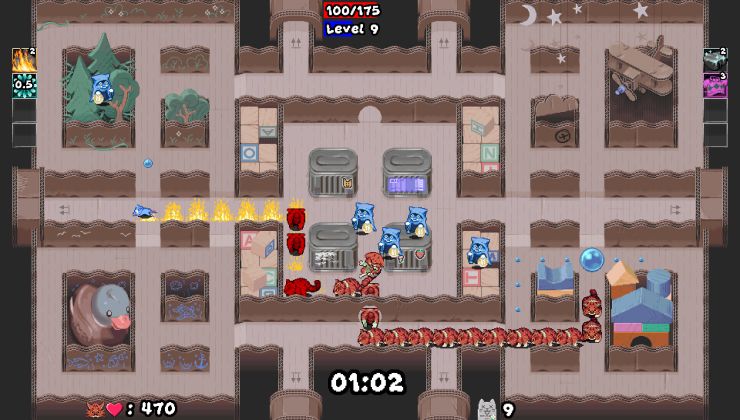Parcel Simulator is certainly not the type of game that would usually grab my attention but the Papers, Please inspiration and gameplay features look weirdly attractive. So now we too can run our own dream warehouse? Well, there's weirder games out there that got popular.
It's a first-person simulation and automation game, with a focus on parcel and package inspections for label discrepancies, contraband, and shipping defects. You take the role of a parcel sorting facility worker, working your way up to having a thriving, automated and self-sufficient parcel sorting centre, with automated conveyor belts, forklift trucks and storage racks, (+ a bunch of other cool stuff)!
Releasing in early 2024, check out the trailer:

Direct Link
Speaking to the solo developer Dan Yates of Scratchpost Studios they mentioned it will have full Steam Deck support. Clarifying with them if that meant Native Linux or support through Proton, and thoughts on desktop Linux support they said:
It'll be through Proton, as the build works really nicely that way for the project. In the same way, desktop Linux support will work fine with Proton too, but no native build planned as of yet.
I had a go a little while ago and was really impressed to see how nicely it worked out-the-box, and have since then focused on keeping the controller support working and also having the right graphics settings set up to keep the game running smoothly on the Deck!
Asking Yates how it felt to develop a game with the Steam Deck they said:
I've found it super exciting more than anything to be honest! Seeing your own game on a handheld like the Steam Deck for the first time is really cool as an otherwise PC-bound game dev.
Valve have done a stellar job making the Steam Deck super accessible for devs. As you know, under the hood it's just a Linux machine so it's really easy to transfer game builds onto it for testing. Proton works super nicely out-of-the-box too, and even on my very first build for the Deck it worked without any serious issues at all.
Development for a device like the Steam Deck (with its small screen and lower end hardware) has its challenges, but it's something I've been conscious about whilst developing:
- User interface and text scaling is something that's been super important for me, especially with all the text on labels and forms in Parcel Simulator. This isn't just limited to the Steam Deck either; people run games on all sorts of screen sizes and resolutions, so it's important that the text and UI are legible no matter what device you'll be playing the game on. It's easy enough to scale down my viewport whilst developing, or pop a quick build onto the Deck, to see how things look in reality from a player's point-of-view.
- Performance is of course another thing worth mentioning. Parcel Sim definitely has a high-res feel about it, but because all the lighting is baked and the models have various LODs (level of detail) the performance ends up being really good, even on lower end hardware.
Going into a little more detail on the work to ensure it performs well on Steam Deck and lower-end hardware Yates said:
Baked lighting - baked lighting, as opposed to real-time lighting, means that the lighting information in the scene is calculated and saved before the game is installed on your device. This means that the lighting looks fantastic, but the hardware you’re running the game on doesn’t have to do any of the heavy lifting for rendering this lighting information. The scenes are still interlaced with some real-time lights, as just a few of these can make a world of difference for rendering real-time shadow information on objects that are spawned at runtime (such as parcels spawned in trucks, or conveyors built by players).
Level of Detail (LODs) - 3D models are made up of polygons, a lot of polygons for that matter! The more polygons the engine (in my case Unreal Engine) has to render, the more performance this will require. When a player is far away from an object, or they’re running on reduced graphical settings, they don’t need to see the full polygon information for that object - instead it’d be totally fine for them to see a slightly less detailed version of the model. This is where LODs come in: all of the more complex 3D assets in Parcel Simulator have a few levels of LOD available, which means that these can be used as necessary whilst playing. If you can only see a conveyor belt from all the way on the other side of the warehouse on a couple pixels on your small screen, the game engine is better off rendering a much less detailed version of that conveyor belt to improve performance. This is especially true for the Steam Deck, as only the closest objects to the player need to be shown at their full level of complexity. Here’s an image of how LODs might look on a sphere:
Object pooling - no, not the swimming kind! In games, especially automation-flavoured games like Parcel Sim, there are lots and lots of objects being spawned at runtime. Object pooling is the practice of putting these dynamically spawned objects into a “pool” which can then be re-used later on in the game. Rather then despawning a parcel when submitting it and then spawning another identical parcel at the other end of the warehouse (an expensive operation), object pooling allows these spawned objects to simply be hidden, moved and made visible without any spawning or despawning taking place at all (from the engine’s perspective)! For anyone that’s played Factorio-style games before, object pooling is essential to keep the performance reasonable in large-scale factories.
In regards to being inspired by Papers, Please they said:
There’s something oddly satisfying and addictive about cross-checking documents for issues in a video game! You know there’s always a chance that something could be incorrect, and so you’re checking and double checking for issues, hoping that you catch that small error or problem. Papers Please makes it easy enough to check through some basic passports at the start, but then quickly ramps up the difficulty in the later days, really keeping you on your toes. I loved that natural progression a lot, and I’ve tried to encompass that feeling in Parcel Sim - albeit with a 3D twist! The 3D aspect is something I saw a lot of potential for too, since it means that you’re able to go beyond document checks into the realm of opening up packages, performing interactive tests and checks on contents, and a bunch of other fun stuff!
Finally, on why they think you should buy it when it's out:
In Parcel Simulator, you begin with a small, hands-on facility where you can spend your days manually inspecting parcels for contraband and labelling issues, or developing and expanding your warehouse with automated machines and intricate conveyor systems. With the help of some careful automation, you can watch your facility grow into a thriving sorting centre that operates exactly how you want it to. Through meticulous parcel inspections and in-depth warehouse customisation, Parcel Simulator aims to provide endlessly satisfying gameplay to casual and experienced players alike. Parcel Simulator will be releasing to Steam in Q1 of 2024, with a demo due to be released later this year.
All sounds great and it certainly now has my curiosity piqued.
You can wishlist / follow on Steam if it sounds interesting for you.
Game looks beautiful btw (as usual with Unreal Engine), the rendering optimization techniques are pretty standard but that doesn't mean devs always employ them.
Stray really suffered from the lack of shader precaching (causing shader hitching), not sure if that was fixed in more recent updates, but it ran a lot better. Maybe that's not even a thing in UE5 anymore, I see they have the FShaderCache API now.
I'm all for weird topics in games and feel like the simulator genre really lends itself to satisfying the curiosity of "I wonder what this niche job would be like". Weird but in a cool way, even better if my expectations are subverted in an interesting manner.Be sure to check out Shower With Your Dad Simulator 2015: Do You Still Shower With Your Dad then! lol :P
Game looks beautiful btw (as usual with Unreal Engine), the rendering optimization techniques are pretty standard but that doesn't mean devs always employ them.
Stray really suffered from the lack of shader precaching (causing shader hitching), not sure if that was fixed in more recent updates, but it ran a lot better. Maybe that's not even a thing in UE5 anymore, I see they have the FShaderCache API now.







 How to install GE-Proton on Steam Deck, SteamOS, Linux
How to install GE-Proton on Steam Deck, SteamOS, Linux An idiots guide to setting up Minecraft on Steam Deck / SteamOS with controller support
An idiots guide to setting up Minecraft on Steam Deck / SteamOS with controller support
See more from me